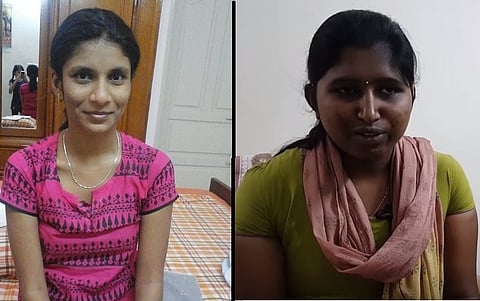

Slashing the customs duty on Braille paper has brought cheer to thousands of visually impaired persons.
The Budget decision of the union government to slash duty on Braille papers has brought cheer to lakhs of blind people in India. This decision, however, did not come simply. It was the result of a sustained effort by two Bengaluru girls studying in Mount Carmel College.
Chandana Chandrashekar and Harshitha, final year BCom students in the college, emailed Rahul Gandhi, who had delivered a talk at the college in November 2015, urging him to raise the issue of a duty waiver on essential equipment.
Taking the Congress Vice-President’s recommendation seriously, Finance Minister Arun Jaitley in the budget 2016, removed the customs duty on braille equipment.
However, many activists who work on issues of the disabled like Mahantesh, head of Samarthanam Trust for the Disabled, feel that more needs to be done.
“Special equipment imported from elsewhere costs around a lakh or two and it is good that duty has been lifted,” Mahantesh said.
“I don’t know if the duty is lifted from braille paper alone or whether it is applicable to other equipment for the disabled. However, in my opinion, if there is an additional duty imposed, it is only going to be a bottle neck in the process of empowering these people,” he said.
“I wish duty was exempted on fitness equipment and physiotherapy equipment that the disabled use, like prosthetic limbs,” he said.
Currently prosthetic limbs attract customs duty at a rate of 7.5%.
“It would not only help disabled people in daily activities, it is also widely used in sports,” he adds.
Harshitha says that though she is partially blind, her family was well off enough to provide her with essential tools and not bother about costs.
“Having worked with various NGOs, I know the kind of awareness there is among people with disabled children. Even when they are told about these provisions, people from poor backgrounds hesitate to buy the equipment,” says Harshitha.
“Until last year there was no customs duty. In 2015, there was a duty of 41% imposed on specialised equipment for disabled people,” says Harshitha, who aspires to be the first visually impaired person to direct a film.
According to the 2001 census, there are 1,06,34,881 visually impaired persons, and over 2,19,06,769 persons categorised under the various categories of disabilities in the country.